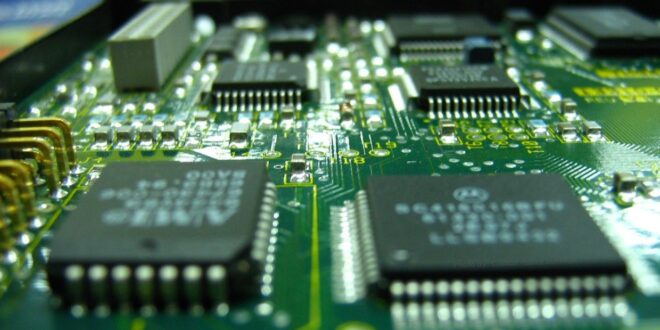PETALING JAYA: MIDF Research expects a stronger second quarter for the technology sector as the semiconductor industry is poised to recover this year.
In its “Awaiting the cuts 2Q24 market outlook”, the research house said it was maintaining its “neutral” stance as the automotive and artificial intelligence (AI) related market could bring in a larger proportion of total sales.
It noted for the first half of last year, the rebound in semiconductor sales mainly stemmed from the automotive and industrial sectors as well as the growing demand for a range of chips that are critical to AI systems.
“However, the communication end markets would still command the largest market share.
“Moving forward, while the communication end market would still play an important role, we anticipate a higher proportion of sales coming from the automotive and AI-related end market,” it said.
Quoting the Semiconductor Industry Association, MIDF Research said market growth is projected to continue over the remainder of the year, with annual sales forecast to increase by 13.1% in 2024 to US$588.4bil compared with last year.
“January semiconductor industry sales improved by 15.2% year-on-year (y-o-y) to US$47.6bil, the highest growth rate since May 2022.
“This indicates that the monthly sales should be on an upward trajectory to achieve the forecast, except for February given the shorter working days,” it noted.
Meanwhile, shipments of the iPhone to China had dropped 33% in February and had notably declined by 24% y-o-y in the first six weeks of this year.
“This has also led Apple’s market share of the Chinese smartphone market to decline to 15.7%, placing it in fourth place from the second place a year ago.
“On the contrary, Huawei posted a growth of 64% y-o-y thanks to its homegrown Mate 60 Pro devices,” MIDF Research said.The research house explained the concerns led Apple Inc to offer discounts on its iPhone on top of allowing its partner vendors in China to offer discounts to spur demand.
“We view that this could have a trickle-down effect in terms of volume order and cost down from Apple to its supply chain,” it said.
Additionally, the Biden administration’s consideration of blacklisting some Chinese semiconductor firms linked to Huawei Technologies Co is likely to further strain the US-China trade relations as the United States seeks to suppress China’s AI and semiconductor ambitions.
The report said the companies include chipmakers Qingdao Si’eEn, SwaySure, Shenzhen Pensun Technology Co. as well as China’s leading memory chipmaker ChangXin Memory Technologies Inc.
“The US government is also asking the Netherlands, Germany, South Korea, and Japan to further tighten restrictions on China’s access to semiconductor technology. We view that Malaysian outsourced semiconductor assembly and test (OSAT) providers would not be impacted by the sanctions surrounding Huawei, but will have a positive spillover effect on Malaysia as the China +1 strategy would continue to be deployed,” MIDF Research said.
The trade war escalation would cause Chinese semiconductor firms to look for Malaysian OSAT providers to mitigate the potential risk of broader sanctions.
Separately, MIDF Research said there is potential for the government to award more contracts to information technology companies that provide e-government and information technology services.
“We believe that MyEG Services Bhd could potentially benefit via its recently acquired 14.4% stake in Heitech Padu Bhd,” it said.
MIDF Research noted that Datasonic Group Bhd was awarded a six month extension contract worth RM135mil until May. It has secured a contract supply of Mykad, MyTentera, and MyPOCA raw cards and consumables for RM28.7mil for a similar time frame.
 BeritaKini.biz Berita Viral Terkini di Malaysia
BeritaKini.biz Berita Viral Terkini di Malaysia





